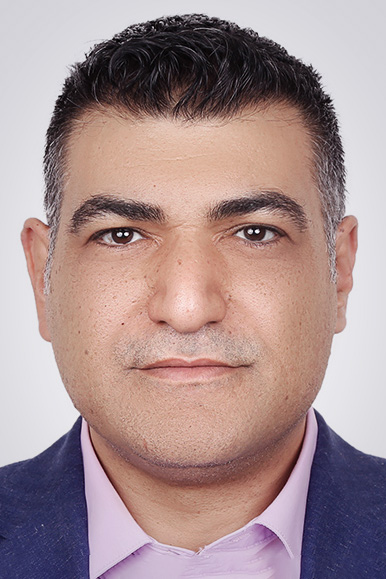

DNS |
Sponsored by |

|
 ICANN's proposed overhaul of root server governance would empower a new council to revoke America's operator status, risking a clash with a resurgent Trump administration and potentially imperiling the multistakeholder model that underpins the internet's core infrastructure.
ICANN's proposed overhaul of root server governance would empower a new council to revoke America's operator status, risking a clash with a resurgent Trump administration and potentially imperiling the multistakeholder model that underpins the internet's core infrastructure.
 Project Jake invites global DNS stakeholders to test JADDAR, a privacy-respecting framework for secure access to registration data, aiming to reduce regulatory fragmentation and modernise domain governance through collaborative, policy-aligned engineering solutions.
Project Jake invites global DNS stakeholders to test JADDAR, a privacy-respecting framework for secure access to registration data, aiming to reduce regulatory fragmentation and modernise domain governance through collaborative, policy-aligned engineering solutions.
 A six year study of Global 2000 firms finds progress on email authentication but worrying gaps elsewhere. Despite rising DMARC adoption, falling DNS redundancy and uneven regional uptake leave companies exposed to domain based attacks.
A six year study of Global 2000 firms finds progress on email authentication but worrying gaps elsewhere. Despite rising DMARC adoption, falling DNS redundancy and uneven regional uptake leave companies exposed to domain based attacks.
 Meltnet envisions a federated internet model led by BRICS nations, combining digital sovereignty with cross-border interoperability. It challenges US-centric governance by proposing a trust-based architecture rooted in shared standards and mutual recognition.
Meltnet envisions a federated internet model led by BRICS nations, combining digital sovereignty with cross-border interoperability. It challenges US-centric governance by proposing a trust-based architecture rooted in shared standards and mutual recognition.
 DNSSEC promised to secure DNS with cryptographic proof, yet messy rollouts, outages, and hype backlash ruined its reputation. This piece argues that storytelling and emotions shape adoption as much as specs, and that automation enables a reset.
DNSSEC promised to secure DNS with cryptographic proof, yet messy rollouts, outages, and hype backlash ruined its reputation. This piece argues that storytelling and emotions shape adoption as much as specs, and that automation enables a reset.
 ICANN invites proposals for its DNSSEC and Security Workshop at the ICANN85 Community Forum in March 2026, offering a platform for global experts to share insights on DNS, routing security, and emerging threats.
ICANN invites proposals for its DNSSEC and Security Workshop at the ICANN85 Community Forum in March 2026, offering a platform for global experts to share insights on DNS, routing security, and emerging threats.
 Internet governance is shifting from participatory forums to security-driven mandates. As authority accelerates ahead of legitimacy, technical systems face growing instability and operators absorb the risks of politically motivated control.
Internet governance is shifting from participatory forums to security-driven mandates. As authority accelerates ahead of legitimacy, technical systems face growing instability and operators absorb the risks of politically motivated control.
 As Internet governance fragments in 2026, authority shifts from open, multistakeholder forums to state-led security regimes, legal instruments, and alliance-based cooperation, challenging longstanding institutions and reshaping global norms through enforcement rather than consensus.
As Internet governance fragments in 2026, authority shifts from open, multistakeholder forums to state-led security regimes, legal instruments, and alliance-based cooperation, challenging longstanding institutions and reshaping global norms through enforcement rather than consensus.
 ICANN is finalising a policy to curb DNS abuse, aiming to preserve internet stability while defending freedom of expression. With regulatory pressure mounting, the multistakeholder model faces a critical test.
ICANN is finalising a policy to curb DNS abuse, aiming to preserve internet stability while defending freedom of expression. With regulatory pressure mounting, the multistakeholder model faces a critical test.
 Grenada advances its digital resilience by signing the Convention on the Packet Clearing House Organization, positioning itself to help shape global Internet governance while gaining coordinated support, stronger infrastructure, and a formal voice in decisions that influence worldwide connectivity and security.
Grenada advances its digital resilience by signing the Convention on the Packet Clearing House Organization, positioning itself to help shape global Internet governance while gaining coordinated support, stronger infrastructure, and a formal voice in decisions that influence worldwide connectivity and security.